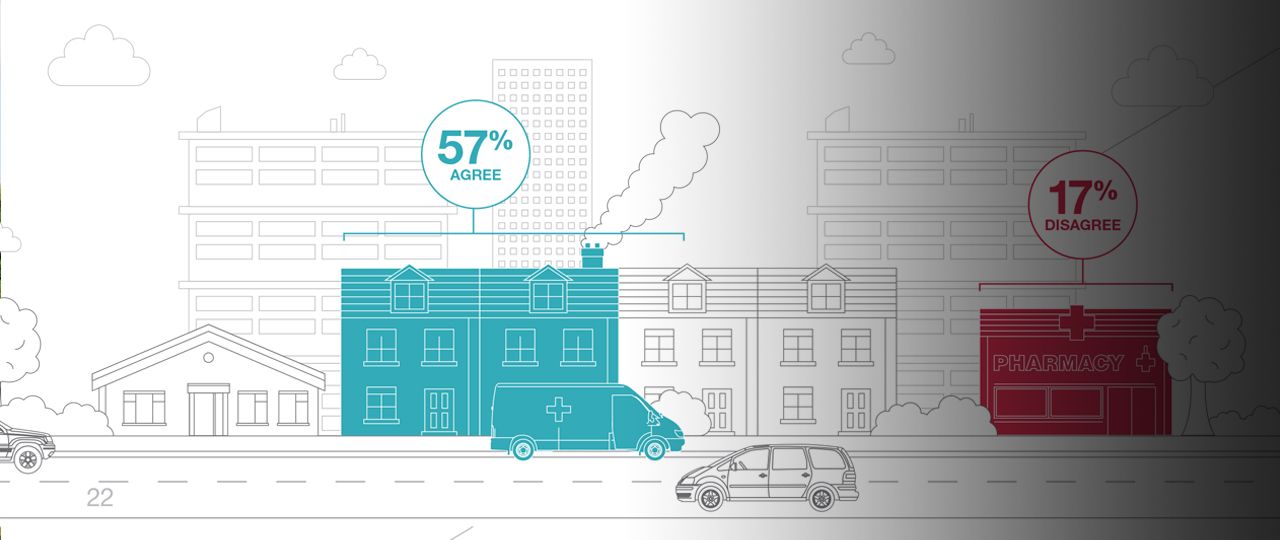
In 2011, government figures showed that 5.9m households were headed by someone aged over 65 – this is forecast to increase to 7.1m households in 2021.
It’s a trend that will hit all areas of the property market.
But what does this have to do with industrial and logistic property? Quite a lot actually.
As part of our Property Futures report, we asked property professionals whether the elderly could be the one demographic that online delivery to the home can really be made to work for. 57% of you agreed.
The right medicine for the sector
As the UK’s population ages, we’ll become more reliant on services provided by other people – one of which is deliveries to our homes. In particularly, pensioners will rely on delivery services for medication.
As self-medication devices become more common in the home, the demand for delivered prescription drugs will rise as well. It makes sense, as people who are unwell or unfit will not want to go to their nearest doctors’ surgery or pharmacy when they can have their medication delivered direct to their door. Healthcare at Home, a provider of online prescriptions, makes over 75,000 deliveries a year.
And it’s not just prescription drugs – over the counter medication is often ordered online whether through apps, pharmacy websites or even just online supermarkets.
This specific sector is still in its infancy compared to the rest of the online retail market – less than 10% of adults ordered their medicine online in 2014, according to the Office for National Statistics.
But it’s an area the government has plans to grow, and it’s looking at ways of expanding deliveries and boosting ‘click and collect’ pharmacies.
Other areas of growth
It won’t just be medicines that elderly people will be getting delivered. Online shopping for groceries is a growing sector. And one that the elderly will take advantage of more in the future.
Age UK figures show that 19% of those aged 80 to 84 and 60% of those aged over 90 have difficultly going out to shop for groceries. And while their figures also show a low uptake in internet usage among similar age groups, it’s felt that in the future this will increase as they become more internet savvy.
Once the barriers to online access are removed, such as cost of computers and technical know-how, older people will become more reliant on online shopping for a number of products.
Benefits for logistics
The benefits of the increase in online shopping and home deliveries for logistics centres are well reported.
We continue to see rising demand for most large and small logistics space across the UK, while there was a 10% yearly boost in finance for commercial vehicles on lease and hire-purchase agreements, according to the Finance and Leasing Association.
But there will be some unique boosts to the rise in older people using online shopping and home delivery. The final mile – often a sticking point for logistic centres – will become less of an issue as it’s felt elderly people are more likely to be at home at the time of delivery. This will reduce costly missed deliveries.
Healthcare at Home has recently improved its logistics and planning systems to allow them to increase the accuracy of its estimated delivery times for patients. This also helps reduce missed deliveries.
On the other hand, with the National Housing Federation predicting a 40% rise in older residents in rural location, logistic centres will need to be developed in places where it makes it financially viable to deliver to more remote areas. The whole logistics network will need to have a more even spread across the UK.
